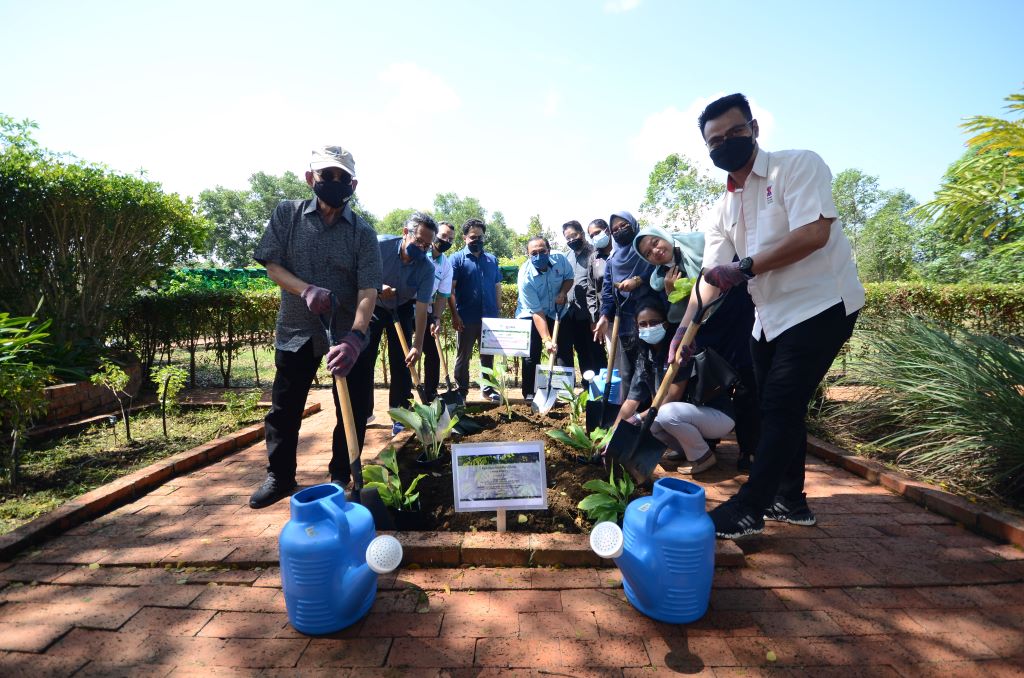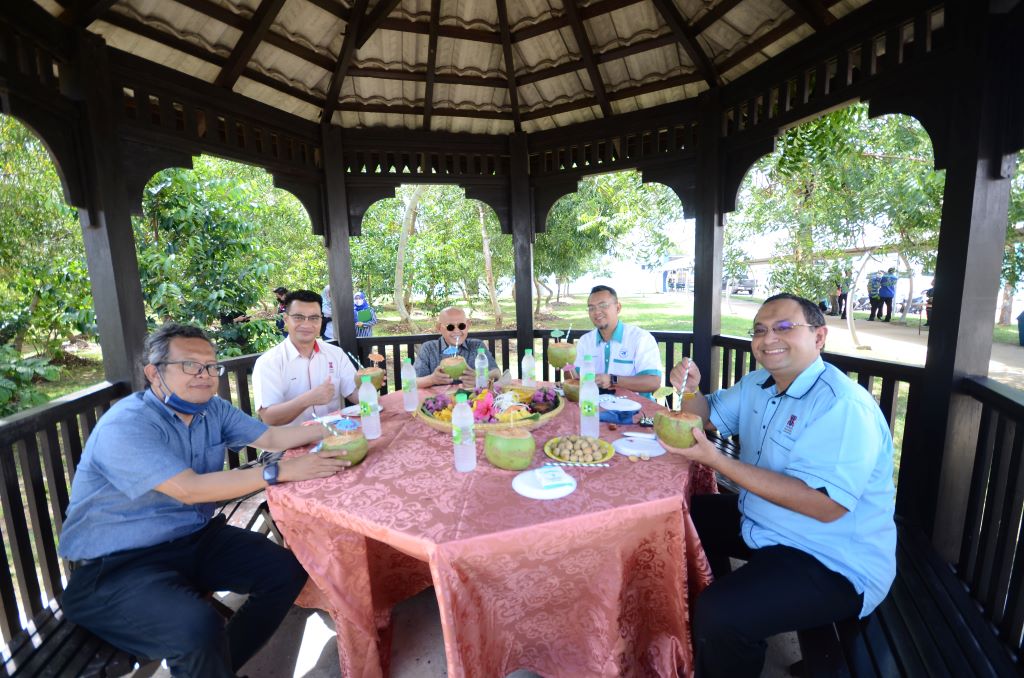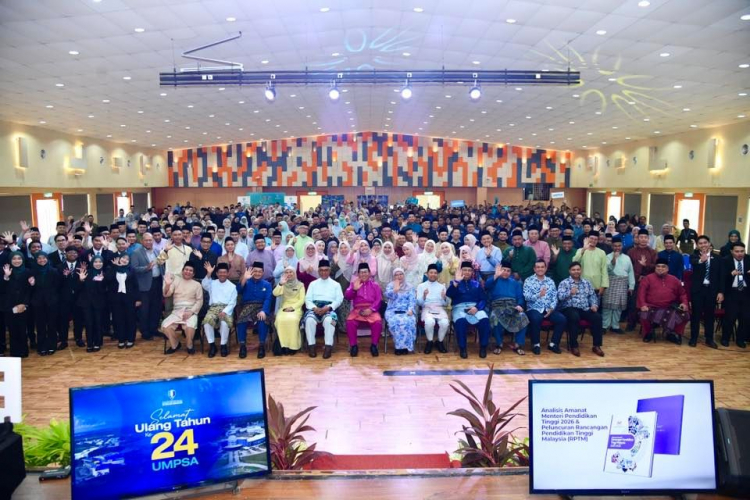Cannonball trees attract UMK delegation
PEKAN, December 10, 2021 - The only cannonball tree or its scientific name Couroupita guianensis located at Rimba Lestari Universiti Malaysia Pahang (UMP) became the focus of the Universiti Malaysia Kelantan (UMK) delegation when they visited to witness UMP’s initiative in preserving the green campus recently.
The unique tree species originating from South America is a foreign tree found in Malaysia as this tree is only grown for botanical research purposes.
It is only available in a few locations such as Taiping Lake Garden, Penang Botanical Gardens, Forest Research Institute Malaysia (FRIM), and Tenom Sabah Agriculture Park.
Apart from cannonball trees, there are also tongkat ali, red meranti, chengal, bruas, Indian-almond, jelutong, shrubby simpoh, dark red meranti, and false elder trees in Rimba Lestari, which are among the 27 types of jungle trees and tropical trees.
There are 1,802 trees planted in collaboration with the Forest Research Institute of Malaysia (FRIM).
“It includes UMP-FRIM (Phase 1) spanning 6 acres and the UMP-FRIM reforestation project area (Phase 2), which is named as Rimba Lestari spanning 5.6 acres.
The UMK delegation, led by the Deputy Vice-Chancellor (Research and Innovation), Ts. Dr. Arham Abdulllah and the Director of the Research and Innovation Management Centre (RMIC), Professor Ir. Ts. Dr. Ahmad Ziad Sulaiman was present along with other researchers.
The delegation also visited several UMP green areas such as fruit orchards, vegetable farm sites, and the Bioaromatic Arboretum Park, which houses aromatic plants and herbs for medicinal or culinary use.
The arrival of the delegates was welcomed by the Chairman of the Board of UMP, Tan Sri Dato’ Sri Dr. Abdul Aziz Abdul Rahman and Professor Dato’ Ts. Yuserrie Zainuddin who performs the functions of the UMP Vice-Chancellor.
Also present was the Deputy Vice-Chancellor (Research & Innovation), Professor Ts. Dr. Kamal Zuhairi Zamli, Chief Operating Officer/Registrar, Hazmin Aris, Director of the Centre for Property Management and Development (PPPH) UMP, Dr. Mohamad Idris Ali and PPPH Manager, Ernie Nurazlin Lizam.
According to Tan Sri Dato’ Sri Dr. Abdul Aziz, this was a return visit when he recently visited the UMK campus to see for himself the development of agrotechnology and knowledge transfer strategies in entrepreneurship and the agricultural sector.
“This visit also sees the potential of kelulut beekeeping in the UMP campus and the sharing of expertise in vegetable cultivation to take advantage of the space available in the university,” he said.
At the same time, UMK also contributed six Black Ginger and Black Turmeric seedlings planted in the Arboretum Park as a symbol of the close collaboration between the two universities.
Meanwhile, Ts. Dr. Arham also thanked UMP for sharing its expertise, especially in university rankings.
He added that UMK always ensures the strategies for transfer of knowledge, expertise, and research to the community, thus generating an agro-based economy.
“At the same time, UMK’s goal is to apply entrepreneurial and technical skills to its residents, including locals, to venture into entrepreneurship in the agricultural sector,” he said.
He also shared the development of other agricultural components such as vegetable crops and fertigation systems, nurseries, sales of trees and ornamental plants, as well as livestock such as goats, cows, laying ducks, and quails.
Meanwhile, Professor Dato’ Ts. Dr. Yuserrie welcomed the delegation and hoped that the visit would be a space to exchange views and input for university planning, whether in research or university development.
During the visit, a presentation on Sustainable Development Goals (SDGs) to be achieved by 2030 was delivered by the Deputy Director of the Centre for Corporate and Quality Affairs, Associate Professor Ts. Dr. Herma Dina Setiabudi and the presentation on green campus was delivered by Dr. Mohamad Idris Ali.
By: Nor Salwana Mohammad Idris, Corporate Communications Unit, The Office of The Vice-Chancellor
Translation by: Dr. Rozaimi Abu Samah, Engineering College/Faculty of Chemical and Process Engineering Technology
- 71 views




 Reports by:
Reports by: 






